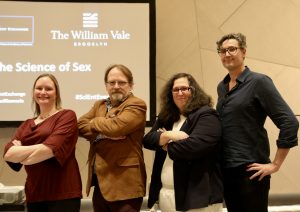
Mice do not fall in love. Ducks have corkscrew-shaped penises. Gender is different than sex.
The conversation at the Science of Sex event on February 12, 2018, was thought-provoking and thoroughly interesting. With Valentine’s Day approaching, the topic of discussion was entirely appropriate. Hosted at The William Vale, the event was moderated by screenwriter Chase Palmer, most recently recognized for his film adaptation of Stephen King’s It. The event featured a panel of three speakers, each of whom discussed a different facet of sex: the act, the emotion, and the metaphysical concept, respectively.
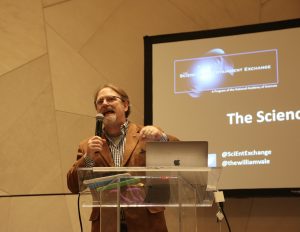
Mark Siddall
The first portion of the presentation was provided by Mark Siddall, who gave a talk on “Desperate Congress”—or the science behind the physical act of sex. Siddall’s presentation skipped the foreplay, both literally and metaphorically. After a generous video montage of sex displays throughout the animal kingdom, Siddall explained some of the science and methodology behind physical acts of sex. This primarily included examining the concepts of insemination and impregnation. The presentation also touched on the idea of consent via animal mating patterns and the ability of females to choose their male mates for procreative purposes.
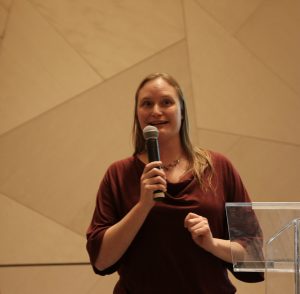
Zoe Donaldson
Zoe Donaldson was the second speaker of the evening. As a neuroscientist with a concentration in the study of monogamy, Donaldson gave a presentation on the diversity of mating strategies and attempted to answer the ultimate question: Are humans monogamous? Her answer, as she warned at the beginning of the talk, remained the same: “Sort of. Sometimes.” Donaldson went on to explain how most animals do not fall in love. They have sex, sure, but feel no connection to their partners, otherwise. Hence, mice do not fall in love. The only exception to this observation, aside from humans, is prairie voles. They form loving attachments and mate for life! Humans, according to Donaldson, exist in a category all on their own; our patterns of monogamy are slightly more complicated than those of prairie voles.
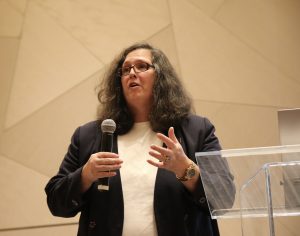
Paula Neira
The third and final presentation came from Paula Neira, a lawyer, nurse, and Navy veteran. Neira’s talk outlined anecdotes from her personal history, punctuated with a clear message: most, if not all rejections of science are based specifically in personal bias. More specifically, Neira addressed this as the reasoning behind the U.S. military barring transgender individuals from participating in service. Neira elaborated that there is no scientific basis behind the concept that trans people are physically unable to perform tasks that cisgendered people can; anyone that argues otherwise is going against science and conflating hard facts with their own personal bias.
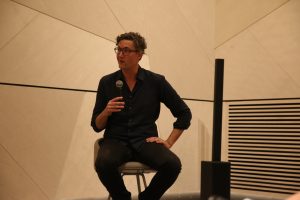
Chase Palmer
After the presentations concluded, all three speakers took the stage with Chase Palmer, who then moderated a Q&A session with the audience. How romantic!
Photo credit: Madeleine Crenshaw






